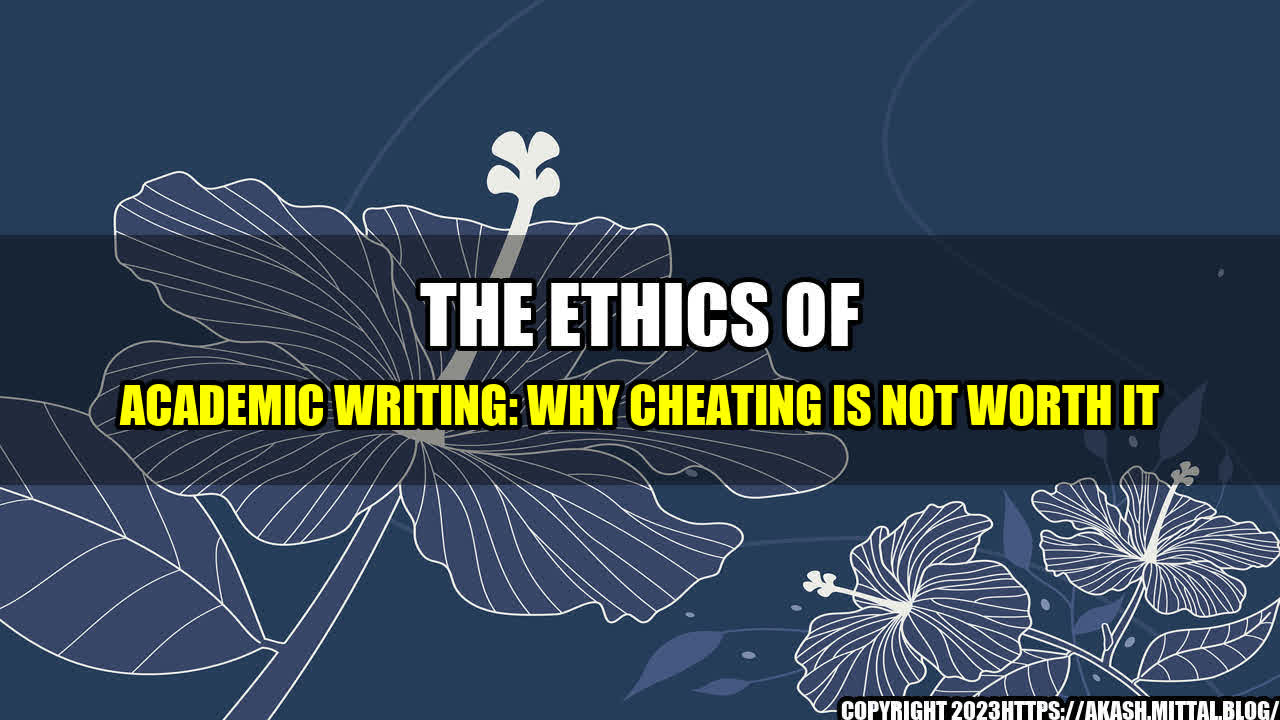A Tale of Two Students
Once upon a time, in a Texas university, there were two students, each with their own approach to academic writing.
"I've been working really hard on this paper, gathering sources, clarifying my ideas, and writing drafts," said Maria, a senior student majoring in History. "I know it's not perfect, but I'm proud of my effort and eager to learn from my professor's feedback."
"I don't have time for all this research and writing stuff," said Tom, a junior student majoring in Business. "I just paid some website to do it for me, and got an A. Easy peasy!"
At the end of the semester, Maria received a B+ for her paper, and Tom received an F for his paper. Why? Because the professor, who we'll call Dr. X, suspected that Tom had cheated by using a writing service, and ran his paper through a plagiarism-checking software called ChatGPT. Lo and behold, the software found that Tom's paper was 100% identical to a sample paper on ChatGPT's website.
The State of Academic Dishonesty
Tom's case is not an isolated incident. According to a study published by the International Center for Academic Integrity, more than two-thirds of undergraduate students in the US admit to cheating on assignments and exams. Cheating can take many forms, such as:
- Submitting someone else's work as one's own, with or without their consent
- Copying and pasting text from online sources without proper citation or paraphrasing
- Using unauthorized notes or devices during exams
- Collaborating with classmates on individual assignments without permission
- Bribing or coercing teachers or administrators for better grades or accommodations
The prevalence of academic dishonesty is concerning for several reasons:
- It undermines the value of education and degrees. If grades and diplomas can be bought or faked, what is the point of going to school? And if employers and society cannot trust the credentials of graduates, what is the point of hiring or rewarding them?
- It harms the individual cheater's learning and character development. Cheating may provide short-term benefits, but it deprives students of the opportunity to improve their skills, knowledge, and ethics. It also reinforces a self-destructive mindset of entitlement, laziness, and deceit that can lead to more serious ethical lapses later in life.
- It creates unfair advantages and disadvantages for different students. When some students cheat, they gain extra points or advantages that are not available to honest students. This can demoralize and discourage the latter group, and reduce the quality and fairness of education overall. Moreover, when some students cheat, they may also lower the standards and expectations for the whole class or program, as teachers may adjust their grading or assignments accordingly.
The Alternatives to Cheating
If cheating is not worth it, what are some better alternatives for students who struggle with academic writing?
- Ask for help from teachers, tutors, or peers. Most educators are willing and eager to assist students who ask for clarification, feedback, or support. They can provide guidance on the requirements, style, and content of assignments, as well as recommend useful resources or strategies for writing.
- Plan ahead and pace oneself. Academic writing is not a task that can be done overnight or in a rush. It requires time, effort, and discipline to research, organize, and write a good paper. Therefore, students should start early, set realistic goals, and break down the process into manageable steps.
- Develop critical thinking and independent writing skills. Ultimately, academic writing is not just about regurgitating information or conforming to rules, but about generating original ideas, arguments, and evidence based on one's own analysis and synthesis. To achieve that, students should practice reading, reflecting, and writing regularly, and cultivate their curiosity, creativity, and curiosity.
The Consequences of Cheating
Before engaging in academic dishonesty, students should be aware of the potential consequences that can accompany it. These may include:
- Receiving a failing grade or zero for the assignment
- Receiving a lower grade or disciplinary action for the course
- Being expelled or suspended from the school
- Losing scholarships, funding, or other academic opportunities
- Hurting one's reputation and credibility with employers, peers, and future schools or programs
In addition, cheating can also lead to legal issues if it involves copyright infringement, identity theft, or fraud. Moreover, cheating can damage one's personal and moral standards, as well as erode the trust and respect of others.
Conclusion
Cheating in academic writing may seem like a tempting and easy shortcut, but it is not worth the price of its consequences. Instead, students should embrace the challenges and opportunities of honest academic writing, by seeking help, planning ahead, and developing their critical and creative skills. By doing so, they can not only improve their academic performance, but also their personal character, and their contribution to society.

Curated by Team Akash.Mittal.Blog
Share on Twitter Share on LinkedIn